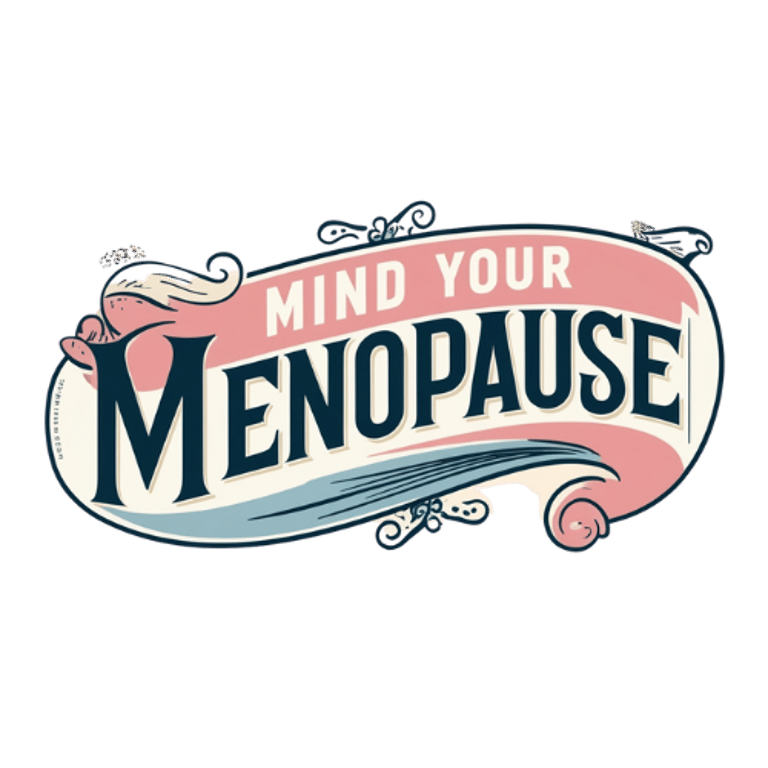The First Signs of Menopause No One Talks About—But You Should Know
Menopause doesn’t always arrive with hot flashes and skipped periods. Sometimes it shows up in ways you never expected—like itchy skin, restless sleep, or aching joints. In this blog, we’re uncovering the first signs of menopause that most women don’t talk about but absolutely should. You’ll learn what to watch for, why these symptoms happen, and how to support your body naturally. No more second-guessing. Just clear answers and doable steps to help you feel steady again.
4/11/20255 min read


If you’ve been thinking, “Something feels off”—you’re not imagining it.
Menopause can begin quietly. You may still have a period. Your doctor might tell you your labs are “normal.” But meanwhile, your body is whispering louder every day: you’re changing, and you need different support.
These first signs are often dismissed as aging, stress, or “just life.” But when you know what to look for, you can shift from confusion to confidence—and give your body the nourishment it’s truly asking for.
Here are 10 real signs of menopause no one talks about—but every woman should know.
1. You’re Feeling Irritable and Overwhelmed for No Reason
It’s not just stress. It’s not your personality.
You’re snapping more often, crying more easily, and even small things feel too big.
Estrogen and progesterone both affect serotonin and GABA—your calming neurotransmitters. As they decline, your nervous system becomes more reactive.
What to watch for:
Mood swings, especially before bedtime or in the morning
A shorter fuse in situations you used to handle with ease
Crying easily or feeling emotionally raw
What helps:
Magnesium-rich foods like pumpkin seeds, spinach, and lentils
B vitamins from leafy greens, beans, or a quality supplement
Calming breathwork or gentle movement like yoga or walking
2. You’re Bloating After Almost Every Meal
Even the healthy stuff feels like too much.
By midafternoon, your belly is tight, puffy, and uncomfortable—and you're not sure why.
Hormonal changes slow digestion and affect your gut microbiome. This makes your body more sensitive to foods and less efficient at processing them.
What to watch for:
A swollen belly, especially at night
Gas, constipation, or unpredictable digestion
Feeling uncomfortable even after light meals
What helps:
Ground flaxseed daily (start with 1 tsp, work up to 1 tbsp)
Warm lemon water in the morning to stimulate digestion
Gut-friendly teas like peppermint, ginger, or fennel
3. Your Joints Are Aching—Even Though You Didn’t Work Out
You didn’t overdo it. And yet your knees, wrists, or hips feel sore, especially in the morning.
Estrogen plays a big role in keeping your joints lubricated and inflammation low. As levels drop, aches and stiffness can creep in—especially in smaller joints.
What to watch for:
Stiffness when waking up
Aches after sitting too long
Soreness after light movement or housework
What helps:
Anti-inflammatory foods like turmeric, ginger, and leafy greens
Hydration with electrolytes (magnesium, potassium, sodium)
Low-impact strength training and stretching
4. Your Skin, Scalp, or Ears Are Itchy for No Reason
You’re scratching more. Your scalp feels dry. Your ears tingle. But there's no rash or allergy in sight.
Estrogen helps maintain skin moisture and barrier function. Without it, dryness and reactivity show up in odd places.
What to watch for:
Itchy ears or scalp
Flaky skin around the chest, arms, or back
Tight or reactive skin that didn’t bother you before
What helps:
Omega-3s from flaxseed, walnuts, or algae-based DHA
Vitamin E-rich foods like sunflower seeds and avocados
A humidifier at night and gentle, unscented skincare
5. Your Gums Are Bleeding or More Sensitive Than Usual
Your oral care hasn’t changed—but your mouth has.
Estrogen plays a quiet role in gum health. As levels fall, tissues thin and become more reactive. It’s not just annoying—it’s a real shift worth noting.
What to watch for:
Bleeding gums during brushing or flossing
Increased sensitivity to hot, cold, or pressure
Dry mouth or changes in breath
What helps:
Vitamin C from citrus, bell peppers, and strawberries
Oil pulling with coconut oil 2–3x per week
Staying hydrated and limiting alcohol and caffeine
6. You Wake Up in the Middle of the Night—Every Night
You fall asleep fine. But like clockwork, you’re wide awake at 2 or 3 a.m.
And your brain won’t stop looping.
This is a cortisol and melatonin issue—both of which are influenced by estrogen and progesterone. Sleep isn’t just about how tired you are. It’s about how safe and regulated your body feels.
What to watch for:
Waking up and struggling to fall back asleep
Racing thoughts or a jumpy nervous system at night
Feeling tired but wired in the evening
What helps:
Magnesium glycinate and vitamin B6 before bed
A calming nighttime routine: low lights, no screens, herbal tea
Protein + fiber at dinner to stabilize overnight blood sugar
7. You’re Gaining Weight—But You’re Eating the Same
Your routine hasn’t changed, but the number on the scale is creeping up.
Especially around your belly, hips, and waist.
Estrogen impacts fat storage, insulin sensitivity, and muscle mass. When it drops, your body starts holding onto fat—especially in your midsection—as a protective response.
What to watch for:
Weight gain without overeating
Cravings for sugar, salty carbs, or wine
A rounder or puffier belly, even if your diet is “clean”
What helps:
Build every meal around fiber, protein, and healthy fats
Swap cardio for strength training 2–3x per week
Add fermented foods to support your gut + hormone detox
8. Your Focus Feels Off—and You Can’t Find Your Words
You're mid-sentence... and forget what you were saying.
Your to-do list feels harder to manage, and even simple decisions feel cloudy.
Estrogen supports blood flow to the brain and neurotransmitter production. When it drops, so does your mental sharpness.
What to watch for:
Forgetting names, tasks, or words
Struggling to focus on one thing at a time
Feeling foggy, spacey, or easily distracted
What helps:
Omega-3s and antioxidants (wild blueberries, flax, leafy greens)
Daily movement—even a 20-minute walk boosts cognition
Reducing multitasking and minimizing digital overwhelm
9. You’re Anxious Out of Nowhere
Nothing’s wrong—but you feel tense, tight, or like something bad is coming.
It hits during quiet moments, in the car, or right before bed.
This is often hormonal. Estrogen supports serotonin and GABA—two neurotransmitters that help keep anxiety in check. Without that support, your stress response gets louder.
What to watch for:
Restlessness or worry that doesn’t make sense
Sudden dread or mood dips
Avoiding things that once felt normal
What helps:
L-theanine for calm focus (found in green tea or supplements)
Deep belly breathing with long exhales
Limiting alcohol, which can spike anxiety overnight
10. Your Body Hair Is Acting Weird
You’re losing hair where you want it—and growing it where you don’t.
Chin hairs, long nose hairs, thinning at the temples. It’s not your imagination.
As estrogen drops, testosterone takes more control. That shift changes your hair growth patterns—from scalp to face.
What to watch for:
Thinning hair at the crown or part
Chin or upper lip hairs that grow back faster
Itchy hair follicles or dry scalp
What helps:
B-complex vitamins and zinc
Scalp massage and rosemary oil for hair regrowth
Embracing your routine with grace—this is hormonal, not personal
Final Thoughts: These Signs Matter—Because You Matter
These symptoms aren’t random.
They’re part of a much bigger shift your body is navigating every day.
And you don’t need to tough it out or figure it all out at once. You just need to listen, respond, and support your body like you would a dear friend—with food, rhythm, rest, and consistency.
Menopause isn’t the end of feeling good—it’s the beginning of understanding your body more deeply than ever before.
Get your free MEND Gut-Healing Blueprint now! 👉
Mind Your Menopause
Supporting women through menopause with expert guidance.
team@mindyourmenopause.shop
© 2025. All rights reserved.
